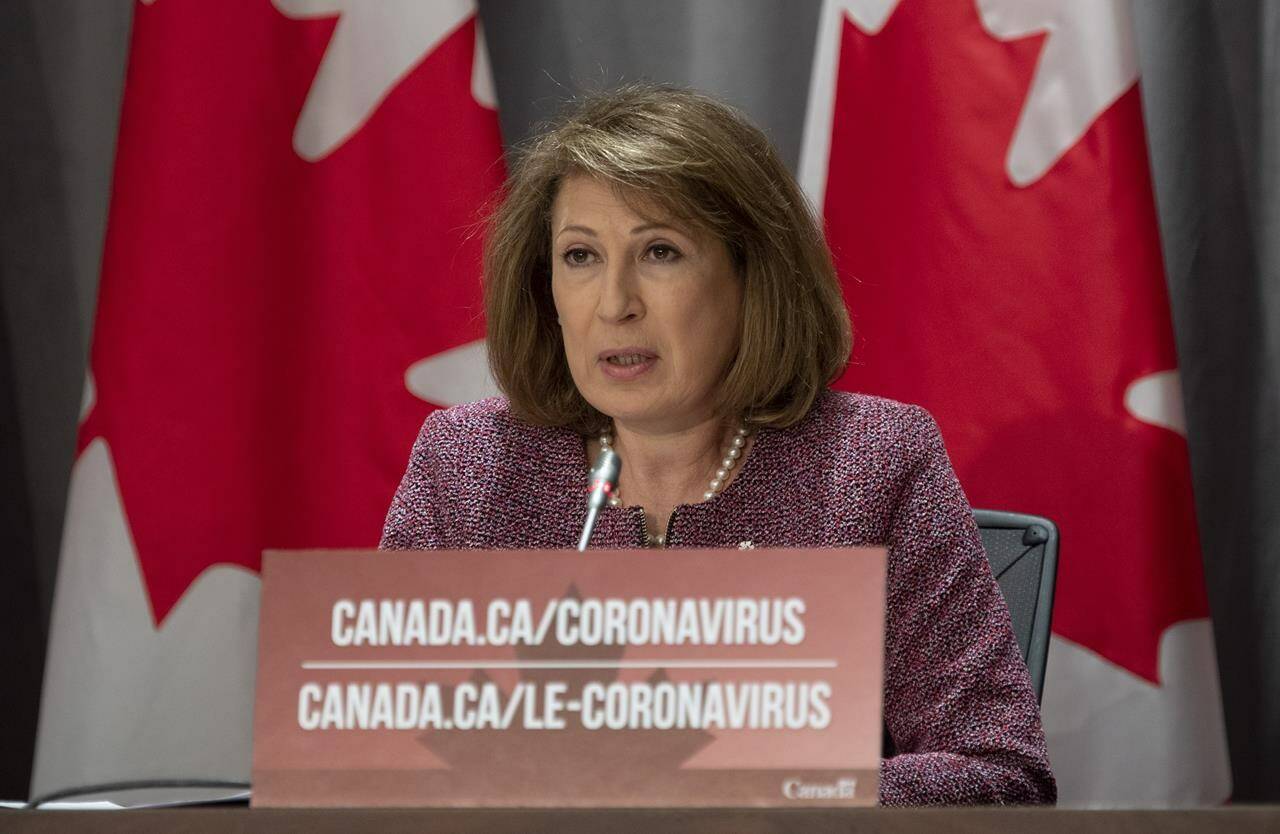Canada’s chief science adviser gave the government a road map on Wednesday to wade through some of the murky and mysterious elements of long-COVID in an effort to offer people better treatment, starting with an admission that the disease even exists.
The recommendations presented by Mona Nemer came from a task force that was established in July to respond to post-COVID-19 condition, or long-COVID.
As of August, 14.8 per cent of adults who have had COVID-19 experienced symptoms three months or more after their initial infection, Nemer said.
The symptoms range in severity and include muscle pain, brain fog, trouble breathing, extreme fatigue, gastrointestinal problems and heart palpitations.
“To start we need to acknowledge that (post-COVID19 condition) is real, that COVID-19 manifests itself as an acute but also as a chronic illness,” Nemer said Wednesday in Ottawa.
For now, there is no consensus on the definition of the condition or how to diagnose and treat it.
“This is where we need a lot of research to understand what was going on, and we also need perhaps to try and see if any of the existing treatments for other diseases can be repurposed,” she said.
The 18 recommendations include strategies to identify and treat patients, track them, research the condition and prevent infections.
Nemer said it is clear that COVID-19 vaccines can reduce the risk of developing long-COVID symptoms.
It’s still not well understood why COVID-19 manifests itself long-term, but Canadian Institutes for Health Research president Dr. Michael Strong said there are three factors at play.
The first is the damage done by the initial infection to the heart, lungs or other organs that can have long-term or even lifelong effects. The next is the immune response triggered by the initial infection which can continue after the virus is defeated. Thirdly, the virus itself can have long-term impacts, particularly in the case of neurological disorders.
Several of the task force’s recommendations call for a research strategy to learn more about the impacts of long-COVID and how it works.
“We don’t know why women are twice as likely as men to contract it. We don’t know why it can accelerate the onset of other chronic conditions like diabetes and heart disease,” Nemer said. “But it is evident that (post-COVID-19 condition) is a serious condition that can have at times irreversible health consequences.”
The Liberal government’s last budget included $20 million over five years to research the long-term effects of COVID-19 infections on Canadians, as well as the wider impact of the pandemic on health-care systems.
That money will be used to develop a research network devoted to long-COVID, which will award research grants in the new year.
The task force also recommended the government develop a web-based platform to connect potential patients with government services and scale up prevention efforts like improved ventilation in schools, workplaces and public spaces.
The full report is expected to be released early next year, but Health Canada and the Public Health Agency of Canada will review the recommendations in the meantime.
—Laura Osman, The Canadian Press
RELATED: ‘It’s really distressing’: Extensive long COVID symptoms linger, 2 years after infection

